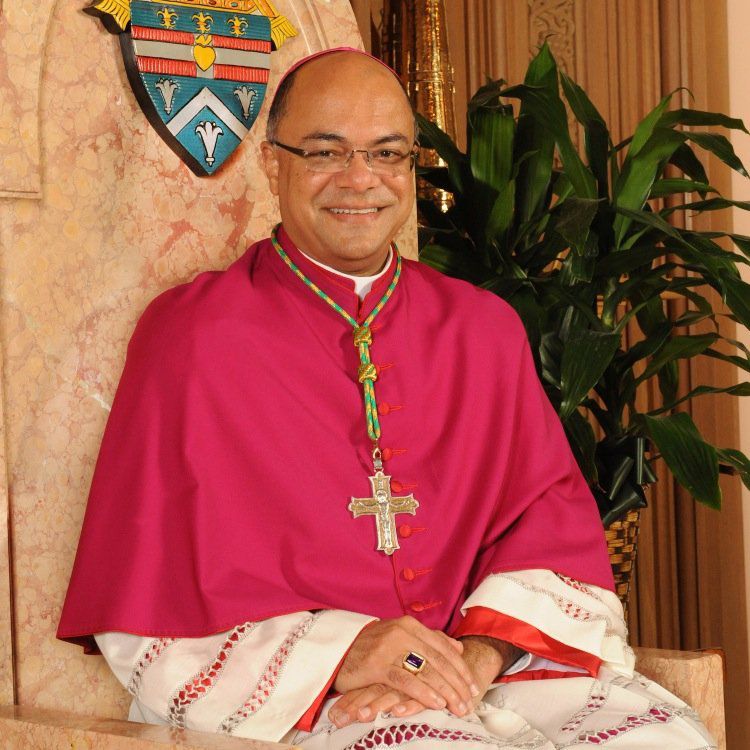
Richard Vegas
May 1, 2019
What to Do if Your Car is Damaged by a Pothole
May 1, 2019On the heels of the Christian world’s commemoration of the most famous execution of all time – and the resurrection that followed – the spiritual shepherd of the Houma-Thibodaux Diocese trekked to Baton Rouge last week, expressing support for legislation that would abolish the use of death as a penalty in Louisiana.
Bishop Fabre delivered a letter to state officials last Thursday, as chairman of the U.S. Conference of Catholic Bishops Ad Hoc Committee Against Racism, joining other clergy of various faiths in what they maintain is a long tradition of religious conviction against the death penalty.
The specific purpose of their visit to the steps of the State Capitol was to show support for bi-partisan repeal legislation authored by former Louisiana State Police Superintendent Terry Landry (D-New Iberia) and Sen. Dan Claitor (R-Baton Rouge.)
Noting that he was addressing lawmakers not as a politician but as a “pastor of souls,” Bishop Fabre affirmed his union with the state’s own Conference of Bishops.
“In the circumstances of this time in history, and with the availability of other options such as life imprisonment, the Catholic Church considers the death penalty inadmissible and an offense against the holiness of human life,” Bishop Fabre’s letter states. “Therefore, the use of the death penalty is unnecessary and unjustified in our time and in our circumstances. It simply perpetuates violence in a culture of death which must be transformed into a culture of life.”
Bishop Fabre noted that he is aware of the grief and past suffering of families who have lost loved ones to criminal acts. The use of the death penalty, the bishop wrote, can further violate those victims left behind.
“The pain and loss of one death cannot be wiped away by another death,” Bishop Fabre’s letter states. “Laws of retaliation and retribution are found in many places in sacred scripture. However, we must always remember that these concerns in sacred scripture begin with God not slating Cain for his murdering Abel, and end with Jesus challenging us not to respond to violence with more violence.”
Landry’s bill, HB 215, would eliminate the death penalty as punishment for murder, first degree rape and treason, the offenses that are capital under state law. The option of sentencing an individual to death for rape of a child will remain on the books if the legislation is passed, but like other forms of rape, the application of death in such cases has been declared unconstitutional by the U.S. Supreme Court. The law, if enacted, would not be retroactive.
Sen. Claitor’s bill, SB-112, would propose to voters a constitutional amendment providing that the death penalty is abolished as punishment for any offense committed from Jan. 1, 2020 onward.
As of October 2018, there were 70 inmates on death row awaiting execution.
District attorneys, who have the option of considering whether a case should be punishable by death if a defendant is convicted, are increasingly shying away from the practice, in many cases citing the tremendous cost involved with litigation to carry out the sentence, which has in some instances stretched over decades.
In a guest editorial that ran exclusively in the Baton Rouge Advocate last week, Bishop Fabre called on Catholics to remembering the season of Easter, the gift of redemption made available to them “because of Jesus’ mercy.”
“For even on the cross, as he suffered and died, Jesus set an example for us by asking his Father to ‘forgive them, for they know not what they do’”, the Advocate Op-Ed piece states. “It is not our place, or the role of our government, to take away another person’s opportunity to seek redemption.”
Both bills as of this writing are pending committee hearings. •









